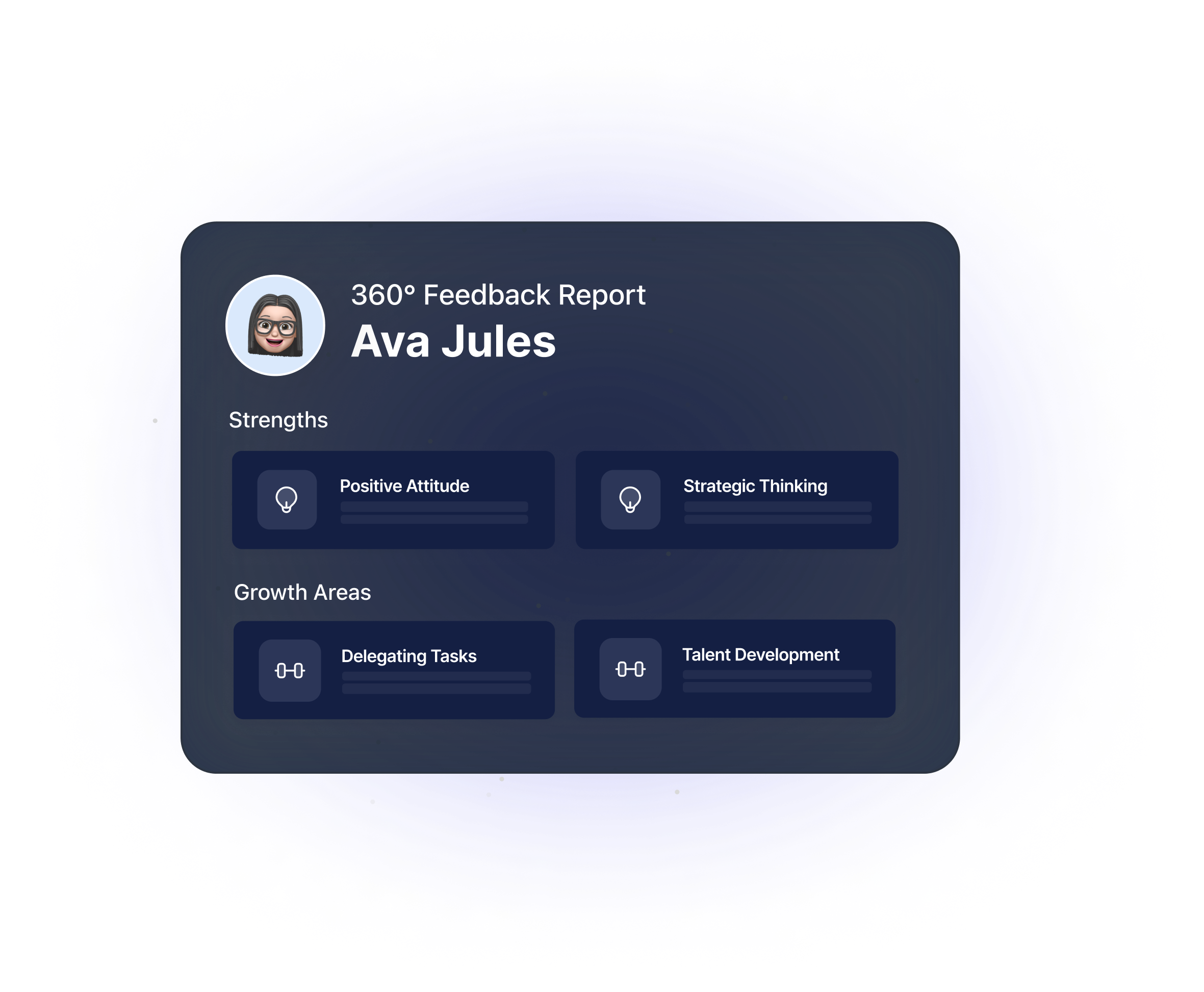Book a demo today
We're all ears! Talk to us about your needs, and we'll providethe best possible solution.

Receive feedback from only those that matter


Insights gathered into a comprehensive report



Frequently asked questions
The phrase “know thyself” has a long and fascinating history, which is summed up nicely on Wikipedia. It is often attributed to Socrates and Plato, but versions of this idea have probably been around long before them. It generally refers to the importance of self-knowledge, and an essential component of enlightenment. With the advent of psychoanalysis in the early part of the 20th century, the idea of “knowing thyself” took on additional meaning in the form of gaining insight into one’s unconscious mind – the part of ourselves that generally exists outside of our conscious awareness but that appears in the form of dreams, slips of the tongue, and unconsciously motivated patterns of thinking and behavior that we often repeat yet don’t understand (and that often don’t serve us well). Gaining self-awareness is always helpful on the path towards greater mental health, even if acquiring it takes time and painful effort. Understanding how others see and experience us is always a critically important part of “knowing ourselves”.
The first thing you should do upon reading your KnowThyself360 feedback is nothing – except think about it. The whole point of getting 360 feedback is to find out what others think of you, and if it was all easy to take, then it probably wouldn’t be useful. So, after you’ve received your feedback, reflect on how the feedback might be right, even if you see things differently, and on how it might be helpful to know how you’re perceived. Sleep on it, share it with a trusted friend or colleague, and ask yourself what it is that you really don’t like about it. What you shouldn’t do is get angry with those who agreed to give you your feedback, or try to defend yourself, or try to figure out who said what so that you can show them why they’re wrong. All of this would be completely not in the spirit of KnowThyself360, and would likely be seen as defensive. This doesn’t mean that there is only one way of looking at things, or that the unpleasant perspective is the only one. But it does mean that you should take it seriously rather than simply dismissing it. If you thought you knew everything about yourself, that could be an exercise in self-deception, and that’s never a good place to be. You should thank those who participated, and be grateful for the candor.
Of course that’s entirely up to you, but assuming you want to try to make some changes based on your feedback, it probably makes sense to wait a year before getting more feedback, because you want any changes in your behavior and interpersonal relationships to be noticeable and sustained before asking for more feedback. Otherwise, it might just seem that you’ve made a temporary adjustment, and then reverted back to your old self. The durability of changes in behavior is extremely important. Equally important, one needs to be clear about what changes in behavior that are sparked by a 360 are realistic and readily achieved by a conscious decision, as opposed to some behaviors that are so deeply engrained in one’s personality that they don’t readily lend themselves to change without the assistance of some good insight-oriented psychotherapy. One needs to be realistic about feedback: some is actionable, some clearly isn’t. If someone told you that you’d be a more effective person if you were a foot taller, that sort of feedback wouldn't be useful.
That would make us very happy. One never reaches the promised land of complete self-awareness – that simply doesn’t exist, and there are always going to be aspects of ourselves that remain unknowable. But if you’re inspired to go deeper, we highly recommend an insight-oriented (sometimes known as “psychodynamic”) psychotherapy or psychoanalysis. It’s a major commitment of time and money, but it can also be a wonderful, liberating experience.
